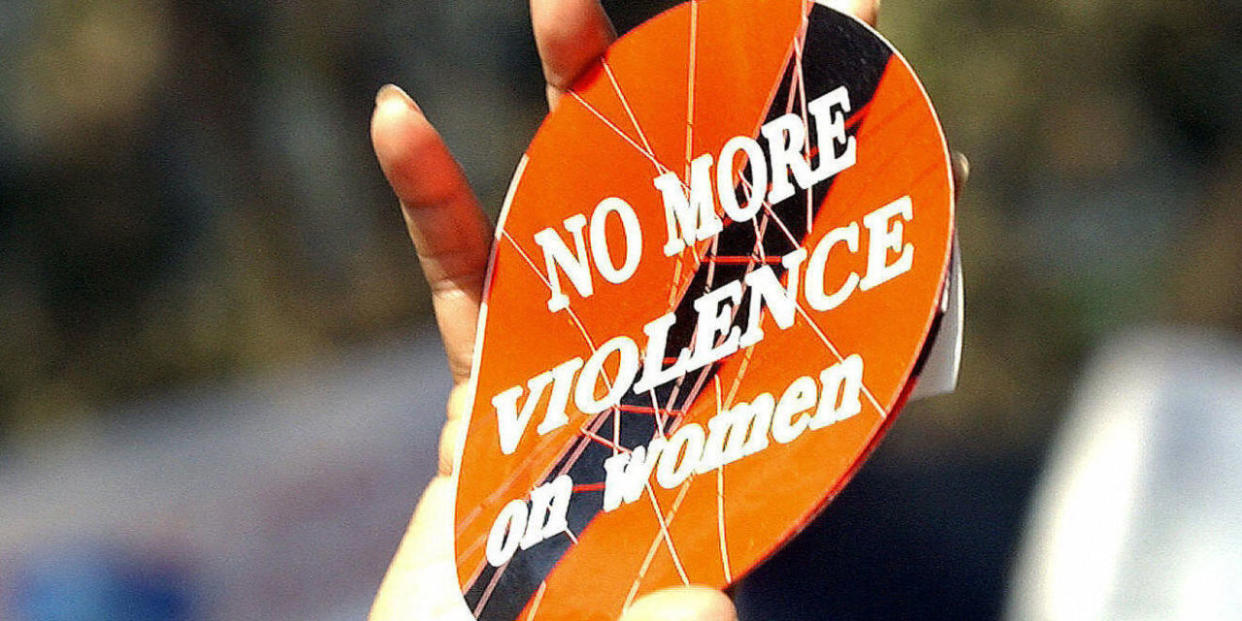Alleged Rapists' Sexual Histories Might Soon Be Included As Evidence

Out of 78,000 victims who are raped each year, only 1,070 rapists are convicted.
That is according to reports from the Home Office and Office for National Statistics.
The situation is so bad that fewer than one in 30 rape victims see their attacker convicted. That is one in five, and it's not a great stat.
A lack of evidence (other than 'he said' or 'she said' accounts), lack of independent witnesses and a biased focus on the past sexual behaviour of the victim are all reasons for the conviction rate being so low.

Most recently and famously, the footballer Ched Evans' guilty verdict was overturned at the Court of Appeal after two ex-partners of his accused victim spoke out about their sexual encounters with her.
Ms Baird, the Northumbria Police and Crime Commissioner who played a large role in changing the law in the nineties, told BBC Radio 4's Today programme:
'The only difference between a clear conviction of Mr Evans in 2012 and the absolute refusal of him having any leave to appeal at that time, and his acquittal now, is that he has called some men to throw discredit on [the woman's] sexual reputation.
'That, I think, is pouring prejudice in, which is exactly what used to happen before the law in 1999 stopped the admission of previous sexual history in order to show consent. We've gone back, I'm afraid, probably about 30 years.
A spokesperson from Women Against Rape told the Independent:
This sets a dangerous precedent to allow irrelevant sexual history evidence, which the law was supposed to prevent, opening the floodgates to trashing the woman's character in any rape trial once again. This trial is a throwback to the last century when women who reported rape were assumed to be lying and their sex life was on trial.
Although this type of cross-examining of potential victims is fairly rare, figures obtained by the Irish Times claim that an average of 30 percent of rape trials included questions concerning the victims sexual history.

They said that, 'the controversial practice is used by defence lawyers to demonstrate promiscuity on the part of the complainant. In a small number of cases, victims are questioned about their use of birth control to show they consented to sexual intercourse. In one case a woman was asked by a defence barrister if she owned any sex toys.'
Since the 1999 ban is clearly too difficult to enforce, the director of public prosecutions Alison Saunders, has announced her plans to ensure this scrutiny is applied to the alleged rapists, too.
The Evening Standard reports that the Crown Prosecution Service will use material such as CCTV, social media and testimony from witnesses who saw the attacker's behaviour before the actual attack.
An example of this could be when attackers stalk bars and clubs to find vulnerable women. By looking at their behaviour surrounding the incident it brings a clearer picture and an extra element to the 'he said she said' debate.
'Saunders said, 'If it's about drink and drugs, in some of them there will have been a targeting element, either by buying drinks or standing back until you pick somebody off'

Not only would hanging around bars, buying endless drinks or even plying someone with drugs be accounted for, but evidence of someone being controlling in a previous relationship, or even earlier in a relationship with the victim, could also be admitted.
Saunders said:
We are looking at how to prosecute certain types of cases, the more difficult ones. They tend to involve drugs or drink and people who know each other. Some of it will be if you have already been in a relationship, understanding the dynamics of coercive and controlling behaviour and presenting cases in a way that doesn't just look at the individual incident.
Looking at the potential attacker's previous behaviours could be nothing short of revolutionary when it comes to these cases, particularly since we know that of the rapists convicted annually, each is guilty of an average of 2.3 attacks.In other words, sexually-motivated attacks do not exist in a vacuum.
Hopefully Saunders' plans will come to fruition and we can see an improvement in our woeful conviction rates.
You Might Also Like


